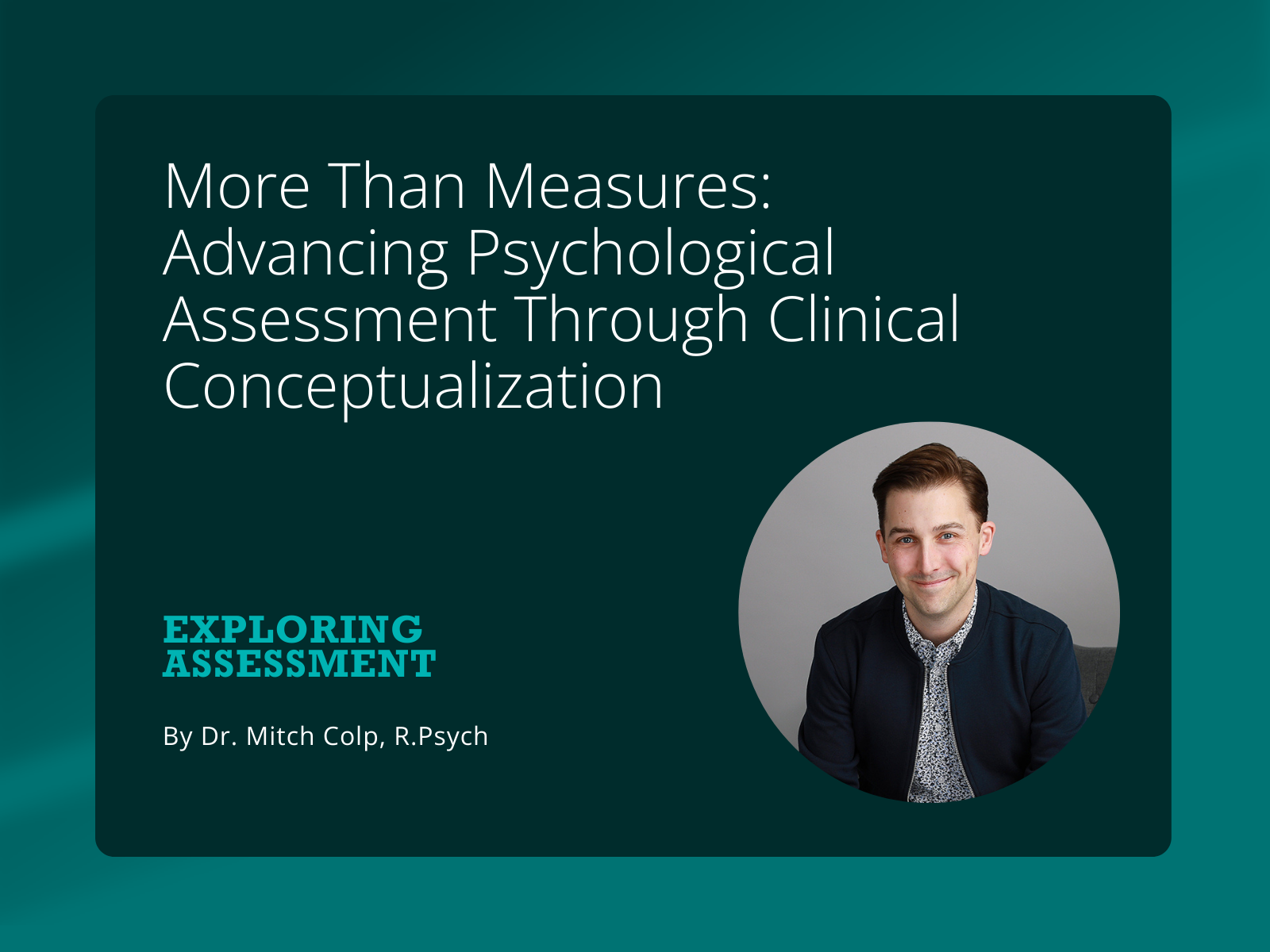
3 minute read
More Than Measures: Advancing Psychological Assessment Through Clinical Conceptualization
By Dr. Mitch Colp, R.Psych
The term “psychological assessment” is often used interchangeably with “psychological testing,” but this conflation reflects a deeper misunderstanding of what assessment truly entails. Assessment is not just about administering tests; it is about understanding people.
Many early-career psychologists pursue assessment to better understand their clients. Yet training often focuses narrowly on administering tools like the WAIS, WISC, or MMPI. While these instruments are valuable, they represent only one component. The more complex and essential skill is clinical conceptualization.
To address this gap, we must better define what clinical conceptualization entails. Clinical conceptualization refers to the process of making sense of diverse clinical information to understand the nature, origins, and implications of a client’s presenting concerns. It integrates data into a working model that informs intervention and guides ongoing care.
Unfortunately, it can also be challenging for trainees to find qualified supervisors who offer support in conducting integrated assessments. As a result, many complete coursework that focuses primarily on test administration without receiving mentorship in broader conceptualization. Without post-training guidance, narrow practices persist, reinforcing the false equivalence between testing and assessment.
Testing yields standardized data. Assessment involves synthesizing interviews, behavioral observations, contextual information, and developmental history to form a meaningful understanding of the client. Testing provides numbers; assessment provides insight.
Being skilled in testing does not equate to being skilled in assessment. Psychometrists are proficient in administering tests. However, they are not expected to interpret results or formulate diagnoses. True assessment demands clinical reasoning, knowledge of comorbidity, and the ability to integrate diverse sources of information into a coherent formulation.
Being skilled in testing does not equate to being skilled in assessment.
Clinicians need tools to integrate interviews, rating scales, and contextual data to develop informed perspectives. This process constitutes assessment, even when formal testing is not involved.
Consider a student who scores low in reading comprehension. Testing might suggest a learning disorder. However, anxiety could be interfering with performance. English might be the student’s second language. The student may not have had access to high-quality instruction. Without broader inquiry, the resulting formulation may be incomplete or misleading. The goal of assessment is not to assign labels based solely on scores. It is to interpret data in ways that guide care. Effective assessment synthesizes diverse information into conclusions that are clinically useful and personally relevant.
Practitioners with limited training may over-pathologize, overlook nuance, and risk causing harm. Inadequate assessment practices also raise ethical concerns, as misinterpretation can lead to inappropriate recommendations, unwarranted labeling, or missed supports - each of which may compromise a client’s wellbeing and autonomy. This highlights the importance of education that emphasizes conceptual thinking alongside technical skills.
To advance the field, we must support training that fosters both competence in testing procedures and the ability to construct meaningful, person-centered conceptualizations.
As our understanding of mental health grows more nuanced, so too must our assessment practices. It is time to elevate assessment from a procedural task to a reflective, collaborative, and contextually grounded endeavor. A thoughtful clinical conceptualization can change a life. A test score, when viewed in isolation, cannot.




